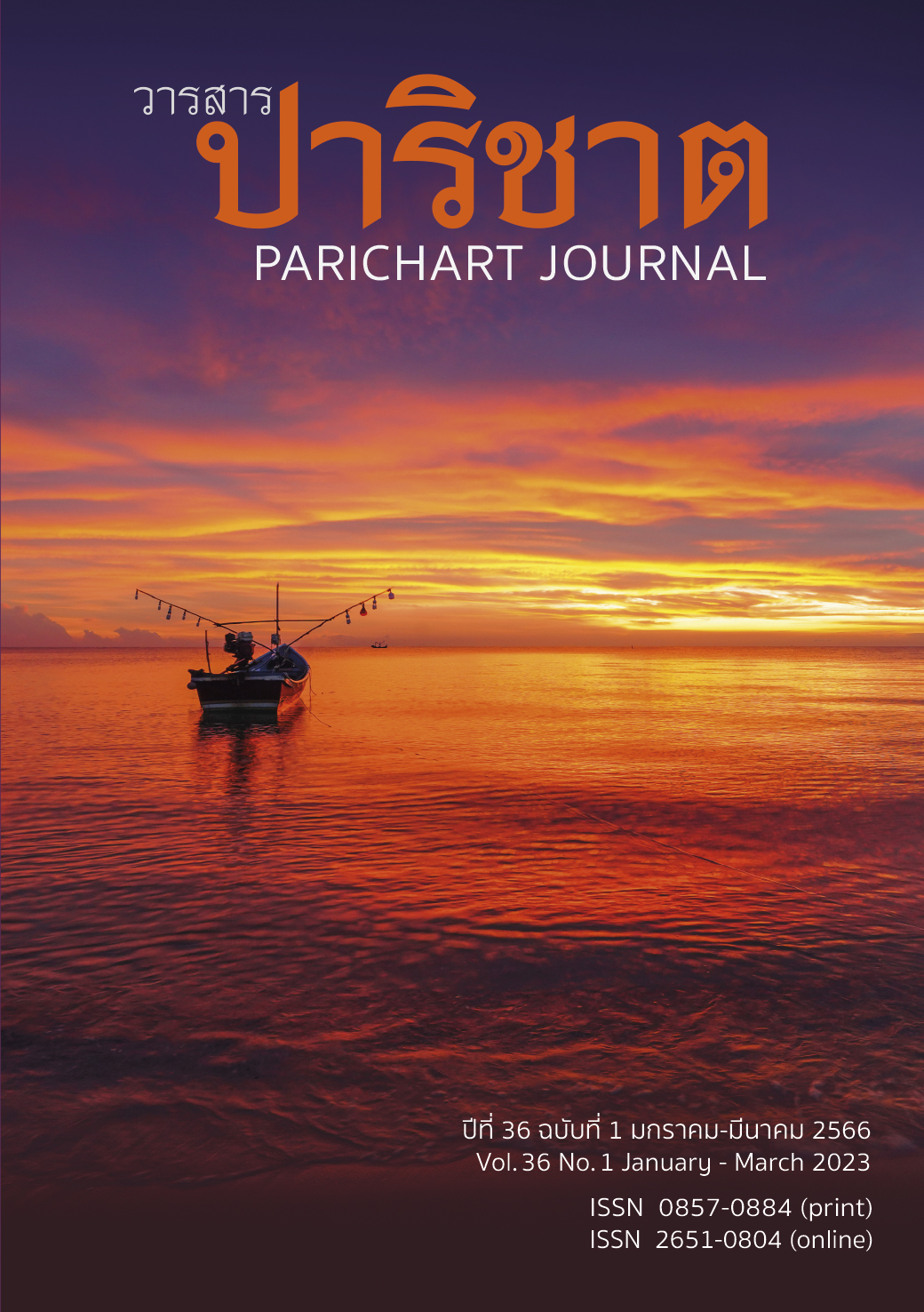“Multicultural Classrooms”: Laws, Policies, Experiences and a Management Model for Social Studies Teachers in Areas with Dense Migrants Workers (Samutsakhon, Pathumthani and Nakhonpathom)
Main Article Content
Abstract
Social studies teachers play a very important role in fostering multicultural classrooms. For this reason, this research has three objectives: firstly to review laws and policies related to teaching and learning management in multicultural society in Thailand, secondly to study and transcribe lessons, learning and teaching experiences of social studies teachers at the elementary level in multicultural classrooms in that provinces, and lastly to develop a teaching management model for primary social studies teachers in multicultural classrooms. This study applied a mixed research method involving a documentary research method, a qualitative research method, and a quantitative research method. The findings revealed the following three aspects. Firstly, laws and policies of Thailand have shown greater acceptance of the multicultural society of the Thai state and provide opportunities for children of migrant workers to study in the education system of Thailand. Secondly, teachers have had experiences in teaching and learning based on 3 principles: teaching using the principles of promoting justice, rights, equality, non-discrimination, non-discrimination, and the exercise of rights and liberties; the principles of promoting peaceful coexistence with understanding and tolerance as well as international friendship among ethnic groups; and the principle of reducing bias and respect for other cultures. Thirdly, teaching management in a multicultural classroom for social studies teachers at the primary level should consider 3 parts: policy environment, the environment outside the school, and the environment within the school including schools, teachers and students. Each of which has a relationship and affect each other both internally and connected with each other.
Article Details

This work is licensed under a Creative Commons Attribution-NonCommercial-NoDerivatives 4.0 International License.
References
United Nations. (2018). Toward safe, orderly and regular migration in Asia-Pacific Region. Challengers and opportunities. United Nations.
Foreign Workers Aministration Office. (2019). Statistics on the number of aliens permitted to work in the Kingdom for the month of February 2019. Foreign Workers Aministration Office.
Thai Post. (2018, May 19). Missing basic rights of children...children of migrant workers. https://www.ryt9.com/s/tpd/2883642.
Mahidol University. (2014). Education of children of migrant workers in Thailand. Institute for Population and Social Research, Mahidol University and the Asian Institute of Technology.
Ministry of Education. (2019). Handbooks and guidelines for providing education for persons without civil registration evidence or without Thai nationality. Teacher Professional Development Institute.
Yongyuan, B., Thanasethakorn, P., & Chumchue, W. (2010). Development of a model for multicultural education in primary schools. National Institute for Child and Family Development, Mahidol University.
Sangthip, S., & Wisetsiri, P. (2015). Evolution of education policy regarding migrant children. An Online Journal of Education, 10(3), 452-466.
Singhadechochai, P. (2017). Multicultural classrooms and peaceful coexistence in early childhood. Journal of Kasetsart Educational Review, 32(2), 65-72.
Mekmai, S. (2017). Education for stateless children. Pathumthani University Academic Journal, 9(1), 36-43.
Office of the Education Concil. (2017). National Education Plan 2017-2036. Prigwha Company Limited.
Ruangsri, S., & Leepreecha, P. (2020). Multicultural education with a new breed of teachers. Panyapiwat Journal, 12(1), 234-246.
Waraphongpipat, N., & Sathawut, Y. (2015). Class management of teachers responding to multicultural classes at the early elementary level : A comparative study between Thailand and the United States. An Online Journal of Education, 10(1), 329-343.
Naowbutr, R., & Sangraksa, N. (2015). Guidelines for education in multicultural education: A case study of Ban Pala-U Community, Hua Hin District, Prachuap Khiri Khan Province. Veridian E-Journal, Silpakorn University (Humanities, Social Sciences and arts), 8(2), 420-435.
Maniphruek, N., & Polprasert, A. (2017). Guidelines for teaching and learning arts that promote multicultural appreciation in primary school in international schools. An Online Journal of Education, 12(4), 531-546.
Sappasuk, W. (2020). Multicultural education status in Thai-Lao PDR border schools: A case study of schools in Chiang Khong District Chiang Rai. Journal of Education Khon Kaen University. 43(3), 1-4.
Intharak, C. (2017). Educational management in multicultural society for tribal children primary school northern border area. Silpakorn Educational Research Journal, 6(1), 7-14.
Kruna, P. (2018, June). Multicultural school administration in two religious schools [Paper presentation]. Graduate School Conference 2018 of Suan Sunandha Rajabhat University, Bank, Thailand.
Saponkit Sangthip and Pongsin Wisetsiri. (2015). Elements of school administration to foster happy learning for stateless children. An Online Journal of Education, 10(3), 16-27.


